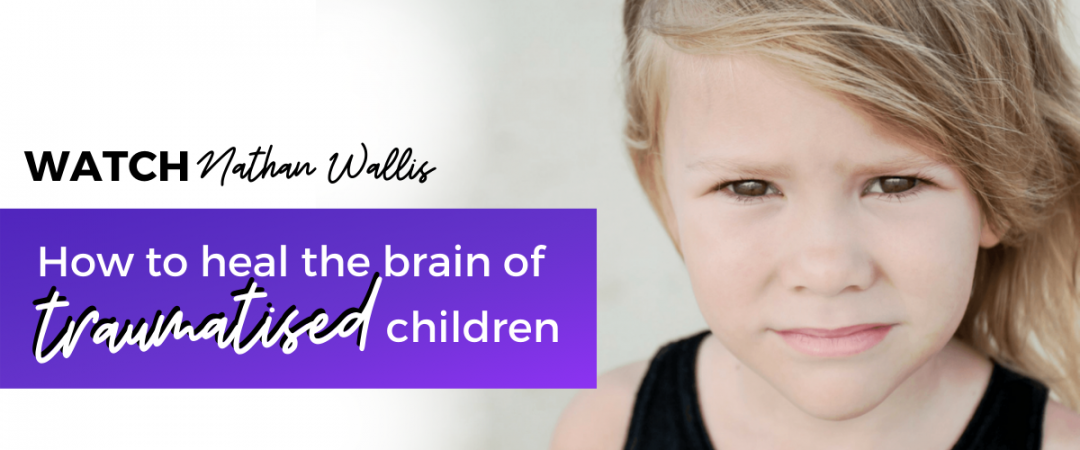Healing Traumatized Children's Brains
Categories: Behaviour, Mental Health
It’s funny how you think kids aren’t listening, when they actually are.
Sometimes, we have conversations with our significant others over the washing-up while the kids watch telly (unfair), or chat on the phone while they’re seemingly absorbed in their own screen. We think we were quiet, we think they weren’t paying attention. But then, they bring it up, sometimes days later, and we realise they were taking it all in, all along.
Whether we let our kids watch the news or not, whether they have access to other information sources like websites or not, they’re going to pick up on the big things that are happening around them, and even the things that are nowhere near them.
With bushfire season only just beginning, our entire country is in shock at how bad it’s been already, including our kids. You probably saw the resource packs we put out when the bushfires were only just starting on their destructive paths. We wanted to give parents and educators these resources to guide them in their conversations about the fires with scared and worried kids. Our posts on this were shared hundreds of thousands of times, so we know this is something we’re all thinking about. And, we know it’s far from over.
So, how do you know if your child is experiencing trauma as a result of the bushfires?
Trauma is a strange creature.
It can show up in unexpected ways, it can look different for different people and people can heal from it in different ways. Kids may have no idea that what they’re going through has anything to do with the fires. They might not have language for how they feel, and they might not know how to tell you what’s up. What’s more, they might only have a vague or incomplete understanding of what’s actually occurred, with some other impressions and reactions they’ve picked up and absorbed from the people around them. If your child’s experiencing trauma, it may not be clear, so here are a few potential trauma indicators to keep an eye out for:
- Changes in the way your child plays or draws
- Regressive behaviour (wanting to be ‘babied’)
- Changes to appetite, energy levels or engagement with activities
- Tantrums, irritability, anger
- Changes to their sleep, such as trouble getting to sleep, dreams or nightmares, anxiety about sleeping alone
- Withdrawing or not wanting to leave their parent/caregiver
- Trouble concentrating.
What can you do to help your traumatised child?
Decide what they need to know
While your kids will still probably pick up on what’s happening, there are still ways to limit their knowledge about the details of traumatic events. Work on a need-to-know basis when you decide how much or little to share with them. Trust your own judgement on this, but calibrate the information you give to their age, developmental stage, sensitivity, level of understanding and degree of separation from the events and/or affected people.
Avoid re-traumatising them
ParentTV expert, Maggie Dent, made this point in our initial video on talking to kids about the bushfires, but it’s worth repeating now. Exposing your kids to a lot of bushfire media coverage could actually make things worse by re-traumatising kids who have already had distressing experiences. Turn off the TV and radio and restrict their access to other sources of media where possible.
Manage your own responses
This can be really hard, but if you can, try and keep yourself together in front of your kids. When there’s been trauma, kids need adults to be human, but in control, says ParentTV expert and neuroscience educator, Nathan Wallis. ‘Show your kids that you’re sad, but also that you have a sense of agency, and you’re doing things about it.’
Give them extra love and support
Validating how kids are feeling, empathising and acknowledging the sadness and difficulty of the situation is important, and some extra nurturing goes a long way, says Nathan Wallis. ‘Mollycoddling them now will actually help their resilience later.’ Give them extra cuddles, let them follow you around and sleep with you if that’s what they want. These are extraordinary circumstances, so they may need extraordinary reassurance.
Change their focus
Have you heard people talk about ‘finding the helpers?’ While it’s not helpful to ignore the reality of what’s happening, diverting your child’s attention to the positive things that are happening in the situation can shift their mindset into a more hopeful or positive one. Talk to them about the hard work and fast responses of emergency services, about the neighbours who saved a family pet, about the monumental fundraising efforts and the love directed at those who have had losses. Then, show them ways they can help, like learning how to make pouches for animals recovering from burns.
Helping traumatised kids in the longer term:
Children are amazingly resilient. With the right support, they can bounce back from trauma, even if it doesn’t feel like it. It may take some longer than others, and some might need professional help along the way, too. But, giving them the right support in the aftermath of the trauma is the best thing you can do to help them heal. ‘It’s the response to trauma that does damage to the brain, not the trauma itself,’ says Nathan Wallis.
If you’re reading this, we know you’re already trying to support your child, so very hard. Please let us know if there are any other questions you’d like answered or expert advice you’d like on helping kids who have been through bushfires by contacting us here.

